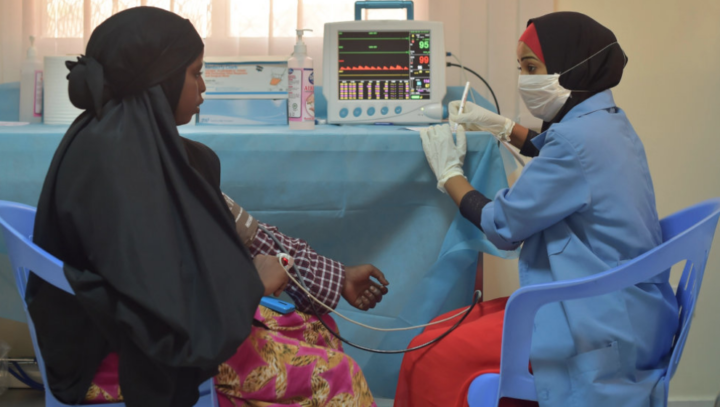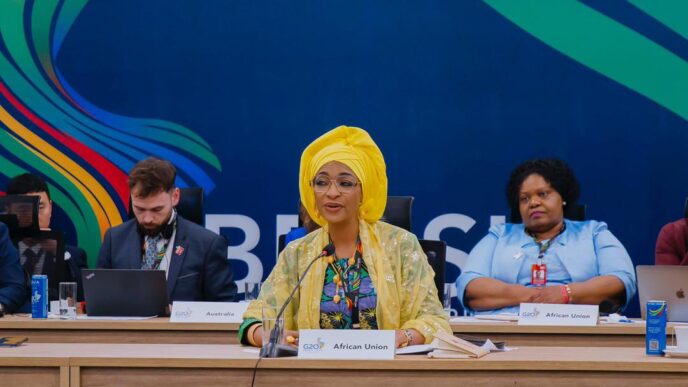Sheikh Zayed Bin Sultan Al'Nahya Hospital attending to a patient in Mogadishu, Somalia.. Telemedicine could be instrumental in solving the continent’s health challenges. Copyright: Tobin Jones / AMISOM, (CC0 1.0 DEED).
Mariette Amadi, founder of 24 Telemed, a digital healthcare delivery platform, says Nigerians can leverage telemedicine to increase access to healthcare.
Amadi, a Nigerian medical doctor based in the US, spoke during the weekend in Abuja at a conference organised to provide medical consultations to Nigerians.
Telemedicine is the use of digital communication technologies, including video calls, mobile apps, and online platforms to provide healthcare and consultation remotely.
This practice improves access to healthcare, particularly for people in remote areas or underserved areas.
Advertisement
Amadi asked patients to embrace telemedicine to beat the constraints of accessing healthcare, including cost of transportation.
Amadi said 24 Telemed provides round-the-clock telemedicine services in Nigeria, adding that it is in partnership with some primary health centres in Anambra and Enugu states.
“Health is important and it should not be expensive. Everybody deserves a healthy life. For us to achieve that, we have to explore other avenues or means to provide people with better and quicker access to medical care,” she said.
Advertisement
“We all know that in Nigeria, we now face fuel scarcity and multiple challenges that affect people’s ability to visit hospitals or seek medical help, including the economic crisis.
“So, part of what we do is create quick access to medical care through digital healthcare, like telecommunication and teleconsultation, as well as virtual consultations and second opinions.
“Part of the reason we did this is to cater for people at all levels and this has been ongoing for the past two years.”
The medical expert said people who reside in areas where there is no internet coverage can access telemedicine through phone calls.
Advertisement
“In rural communities, we must consider the internet as network coverage is very poor, which is one of the challenges we face, alongside literacy levels,” Amadi said.
“However, in these areas, most people have simple phones that are easy to use. They may not have access to virtual care, but they can call. When they do call, the doctors answer their questions and address their needs.”









